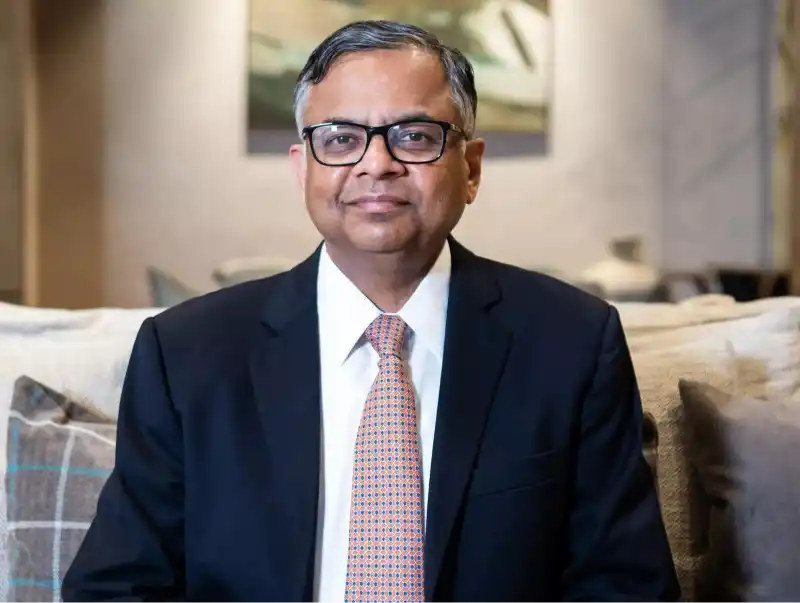Tata Trusts has approved a third executive term for Tata Sons Chairman N Chandrasekaran, effectively setting aside the group’s long-standing rule that requires executives to retire at 65. Chandrasekaran, who turns 65 in February 2027, will now continue beyond that age in an active role, the first such waiver in the group’s history.

The decision, taken at a Tata Trusts meeting on September 11, was proposed by Noel Tata and Venu Srinivasan and approved unanimously, according to reports. Tata Sons is expected to formalize the extension in February 2026.
Continuity Over Convention
Sources told The Economic Times that the extension was granted to ensure steady leadership as the group navigates key strategic transitions in semiconductors, electric vehicle batteries, and the turnaround of Air India. “For the sake of continuity, it was felt that executive leadership was necessary to see through critical projects,” a person familiar with the discussion said.
While executives are permitted to hold non-executive roles until 70, this is the first formal exception for someone to stay in an active executive position. Noel Tata, for instance, stepped down from his executive duties at 65 but continues in non-executive roles across Tata entities.
Decision Amid Strategic Shifts
The move comes as Tata Sons faces internal debates over whether it should remain a private company. A July resolution backing its private status is reportedly under review, adding to the need for stable leadership.
Chandrasekaran’s leadership has been widely credited with modernizing the Tata Group and driving strong financial results. Under his tenure, the conglomerate’s revenue nearly doubled to ₹15.34 lakh crore in FY25, while profit rose to ₹1.13 lakh crore. However, a 30% decline in TCS stock has pulled down the group’s market cap by nearly ₹6.9 lakh crore in the past year.
Strong Record of Growth
Since taking over as chairman in 2017, the former TCS chief has reshaped Tata’s business portfolio, leading the group into semiconductors, electronics manufacturing, digital retail, and clean energy. He oversaw the return of Air India to the Tata fold, the merger of Vistara and AirAsia India, and the establishment of large-scale projects like Tejas Networks and battery gigafactories in India and the UK.
Tata Sons’ net worth has grown from ₹43,252 crore in 2018 to ₹1.49 lakh crore under his leadership.
Stability at the Core
Analysts see the move as pragmatic rather than surprising. Ketan Dalal, Managing Director at Katalyst Advisors, said the group is at a “critical juncture” marked by both opportunity and uncertainty. “The extension may look unusual, but given Tata’s ongoing transformation and external pressures, from Air India to semiconductor ambitions, steady leadership was essential,” he said.
The Trusts’ decision signals a clear vote of confidence in Chandrasekaran and reflects the group’s preference for stability over strict adherence to precedent as it steers through one of its most complex phases in decades.
